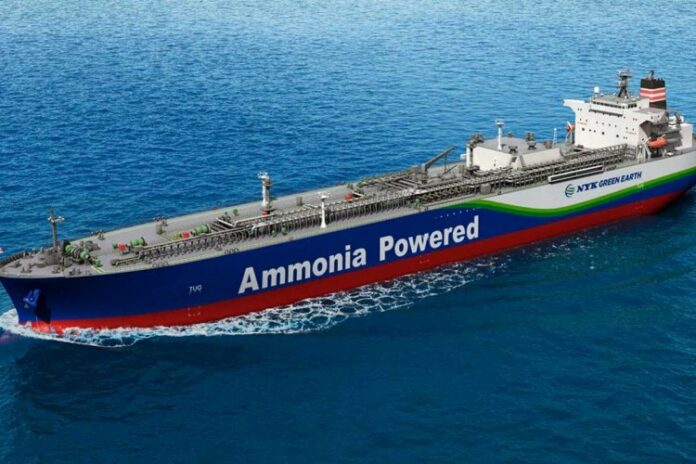Nippon Yusen Kabushiki, in collaboration with Japan Engine Corporation, IHI Power Systems, and Nihon Shipyard, has finalized a series of contracts to construct the world’s first ammonia-fuelled medium gas carrier. This groundbreaking vessel will feature engines made in Japan and is scheduled for delivery in November 2026, heralding a crucial advancement in the maritime sector’s journey towards decarbonization.
The contracts, inked in December 2023, specify that the 40,000 cubic meters (cbm) type ammonia fuel ammonia carrier will be constructed at the Japan Marine United Corporation (JMU) Ariake Shipyard. The collaboration between these entities represents a significant stride in addressing the imperative need for sustainable solutions within the maritime industry.
Looking ahead to the vessel’s completion in November 2026, the consortium will engage in the manufacturing of main and auxiliary engines, undertake detailed studies for construction, and develop an operation manual for practical use. Post-completion, the vessel will undergo operational demonstrations to evaluate performance, environmental impact, and the efficacy of the operation manual. Valuable user feedback gathered during this phase will aid shipbuilders and marine equipment manufacturers in refining and enhancing their products.
Japan Engine Corporation will play a pivotal role in the project by overseeing the development of the ship’s main engine, producing an ammonia fuel dual-fuel two-stroke engine. Simultaneously, IHI Power System will contribute by providing the auxiliary engine. Under the banner of ‘Changing the future of the sea and the future with Japanese technology,’ Japan’s maritime industry is fervently working towards leading the world with the AFMGC, reflecting the nation’s commitment to innovation and sustainability.
The significance of transitioning to next-generation fuels is underscored by the pursuit of net-zero emissions in international shipping. Ammonia, a fuel choice for the AFMGC, holds promise due to its combustion process, which does not emit carbon dioxide (CO2). This attribute positions ammonia as a next-generation fuel capable of contributing significantly to global warming prevention efforts.
While international rules for ships using ammonia as fuel are yet to be established, the International Maritime Organization (IMO) is actively deliberating on the matter. The consortium’s project stands as one of the pioneering efforts to develop ammonia-fuelled ships, and the knowledge gained from constructing and operating AFMGCs will be pivotal in shaping discussions at the IMO. The consortium is committed to collaborating with ClassNK and Japan’s Ministry of Land, Infrastructure, Transport and Tourism (MLIT) to actively contribute to the formulation of international regulations in this domain.



